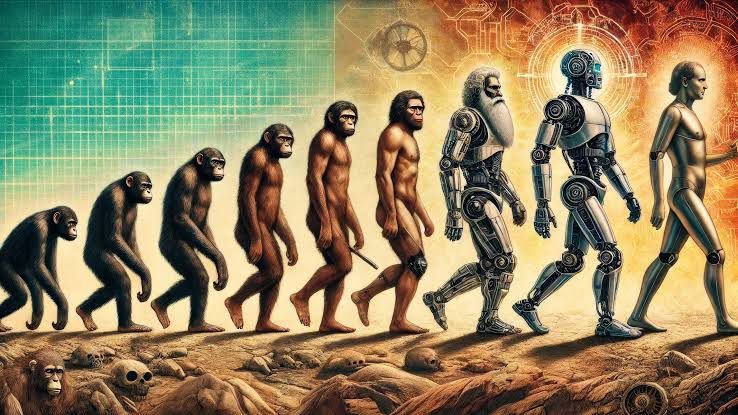Chapter 11: The Evolution of Humanity and Potential Future Changes
Chapter 11: The Evolution of Humanity and Potential Future Changes
Evolution is a continuous process that has been ongoing since its inception. Every living organism on Earth has undergone evolutionary changes over thousands of years. But what about humanity? The human species has undergone a much faster evolutionary journey compared to other organisms. However, beyond traditional evolutionary processes like natural selection, the evolution of humanity has taken on a completely new dimension thanks to modern science and technology.
Today, with advancements in genetic engineering, artificial intelligence, and biotechnology, the pace of evolutionary processes is accelerating. Humanity is pushing the boundaries of biology and taking steps to control its own evolution. In this chapter, we will explore a few different scenarios regarding how the evolutionary journey of humankind may unfold in the future and discuss potential developments that could give a new direction to humanity’s evolutionary path.
The Impact of Technology on Evolution: Biological Change or Technological Revolution?
In recent years, significant progress has been made in the fields of biotechnology and genetic engineering. Tools like CRISPR, which allows genetic modifications, are offering revolutionary opportunities to treat diseases and change genetic makeup. The ability to intervene in the genetic structure of humans could accelerate biological evolution and potentially enable us to make profound changes to the human species in the future.
However, the effects of these changes on the human species are still unclear. Genetic engineering and biotechnology could hinder the natural selection process of evolutionary changes. Instead of adapting to environmental factors, humans may opt to modify their biological structure using technology. This approach could be seen as contrary to the natural course of evolution.
Another significant technology is the developments in artificial intelligence (AI) and bioinformatics. AI could increase the pace of evolutionary changes. Humans may use AI to become smarter, faster, and more resilient. Brain-computer interfaces could create opportunities to enhance human abilities and transfer thoughts to digital platforms, which could advance the evolutionary potential of the human brain far beyond genetic changes.
The Evolution of the Human Brain: Mental Development in the Future
The evolution of the human brain has been one of the most crucial factors in guiding the development of humanity throughout history. The size and structural complexity of the brain are some of the key features that distinguish humans from other animals. But will the evolution of the human brain come to an end at some point, or could it progress to a more advanced stage?
Today, with advancements in neurology and brain-computer interfaces, the potential of the human brain is being reshaped. Technologies could be used to improve brain functions and push the boundaries of human cognition. For instance, AI could be integrated into the human brain to enhance learning capacity and problem-solving skills. Such technological interventions could take the human brain far beyond what genetic evolution could achieve.
If these technologies to enhance mental capacities become widespread, humanity may transition from biological evolution to a new stage of mental evolution. Humans could potentially become digital entities by integrating the brain directly with digital platforms, transcending their physical bodies.
Evolutionary Transformation: The Future of the Human Body
The effects of evolutionary processes on humans largely depend on environmental factors and technological advancements. The human body has evolved over thousands of years to reach its current form. However, in future evolutionary processes, the human body may take on an entirely new form due to the influence of technology and genetic engineering.
For example, genetic interventions could make humans live longer, become more resilient, and healthier individuals. Humans may gain genetic immunity to future diseases. Additionally, the weaknesses in the human body could be eliminated thanks to scientific advancements. This would allow evolutionary processes to occur much more rapidly and in a controlled manner.
Furthermore, humans could undergo biological changes to adapt to environmental conditions. They may undergo changes that allow them to live more comfortably in low-oxygen environments or in space. Such biological evolutions could enable humanity to survive not just on Earth but also in space.
Conclusion: The Future of Human Evolution
Evolution is a continuous process of change and adaptation. The biological evolution we see today is the result of millions of years of development, but humans now have the capacity to accelerate biological evolution. Technology, genetic engineering, and artificial intelligence could reshape the evolutionary journey of humanity. In the future, humanity may be able to determine the pace of natural selection itself. Humans could transcend biological boundaries and reach a much higher level of mental and digital evolution.
In the next evolutionary processes, humanity may consciously guide its evolution beyond the selection processes determined by nature. This will mark a new era where humanity has full control over its evolutionary process, fundamentally changing the future of the human species.





Comments